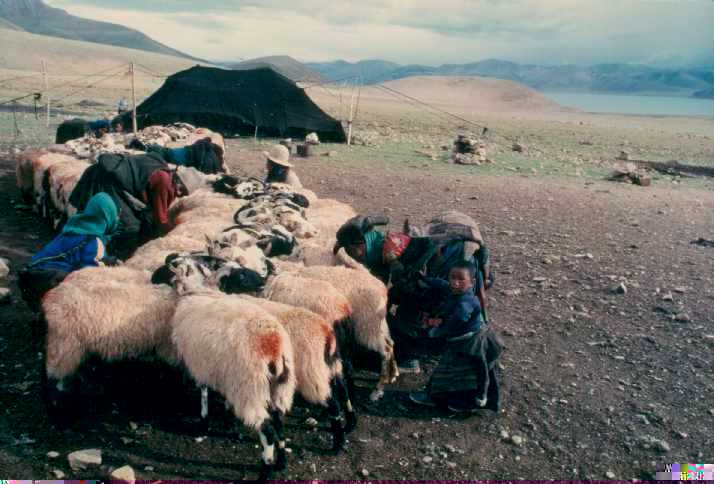 Dharamshala: - A Chinese official in Amdho region of Tibet has claimed on Saturday (27 March) that China plans to build 25,000 settlements for herding families this year as the government continues to work to improve the life of the herding community.
Dharamshala: - A Chinese official in Amdho region of Tibet has claimed on Saturday (27 March) that China plans to build 25,000 settlements for herding families this year as the government continues to work to improve the life of the herding community.
"The provincial government would spend nearly 6 billion yuan (about 923 million U.S. dollars) in five years to settle 134,000 herding families, mostly Tibetans, in safe and comfortable homes," claimed Deng Bentai, Vice Governor of so called Qinghai Province.
More than 46,000 settlements have been built since the project started in 2009, with the purpose of helping nomadic people in the province settle down in permanent homes, Deng said. Four thousand others are currently under construction.
After more than 50 years of Chinese occupation over Tibet, thousands of Tibetan herding families still have limited income and live in poor conditions in the Himalayan region of Amdho, eastern Tibet.
The huge forceful resettlement of nomads still ongoing in Tibet, this policy is having a disastrous impact on Tibetan herders' ability to maintain their traditional livelihoods and on a distinctive form of Tibetan cultural identity. The policy also threatens potentially ruinous consequences for the Tibetan Plateau, and consequently for billions of people living in the continent of Asia.
Tibet is the sources of Asia's major rivers, and the regime is aggressively developing mining and other extractive industries in order to profit off Tibet's mineral wealth with little to no benefits going to the Tibetan people. Many scientists state that if these open mining continues in the current vein, disastrous effects could be felt across region, including China itself.


![Tibet has a rich history as a sovereign nation until the 1950s when it was invaded by China. [Photo: File]](/images/stories/Pics-2024/March/Tibet-Nation-1940s.jpg#joomlaImage://local-images/stories/Pics-2024/March/Tibet-Nation-1940s.jpg?width=1489&height=878)















